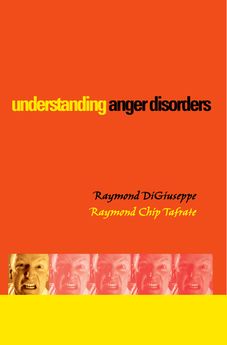Since classical times, philosophers and physicians have identified anger as a human frailty that can lead to violence and human suffering, but with the development of a modern science of abnormal psychology and mental disorders, it has been written off as merely an emotional symptom and excluded from most accepted systems of psychiatric diagnosis. Yet despite the lack of scientific recognition, anger-related violence is often in the news, and courts are increasingly mandating anger management treatment. It is time for a fresh scientific examination of one of the most fundamental human emotions and what happens when it becomes pathological, and this thorough,
persuasive book offers precisely such a probing analysis.
Using both clinical data and a variety of case studies, esteemed anger researchers Raymond DiGiuseppe and Raymond Chip Tafrate argue for a new diagnostic classification, Anger Regulation and Expression Disorder, that will help bring about clinical improvements and increased scientific understanding of anger. After situating anger in both historical and emotional contexts, they report research that supports the existence of several subtypes of the disorder and review treatment outcome studies and new interventions to improve treatment. The first book that fully explores anger as a clinical phenomenon and provides a reliable set of assessment criteria, it represents a major step
toward establishing the clear definitions and scientific basis necessary for assessing, diagnosing, and treating anger disorders.
Features
- Selling point: An overview and analysis of theories, data, and interventions for anger and hostility
- Selling point: Provides a balanced treatment of a range of models of anger and aggression
Researchers and practitioners in clinical psychology; anyone interested in understanding anger and aggression.
